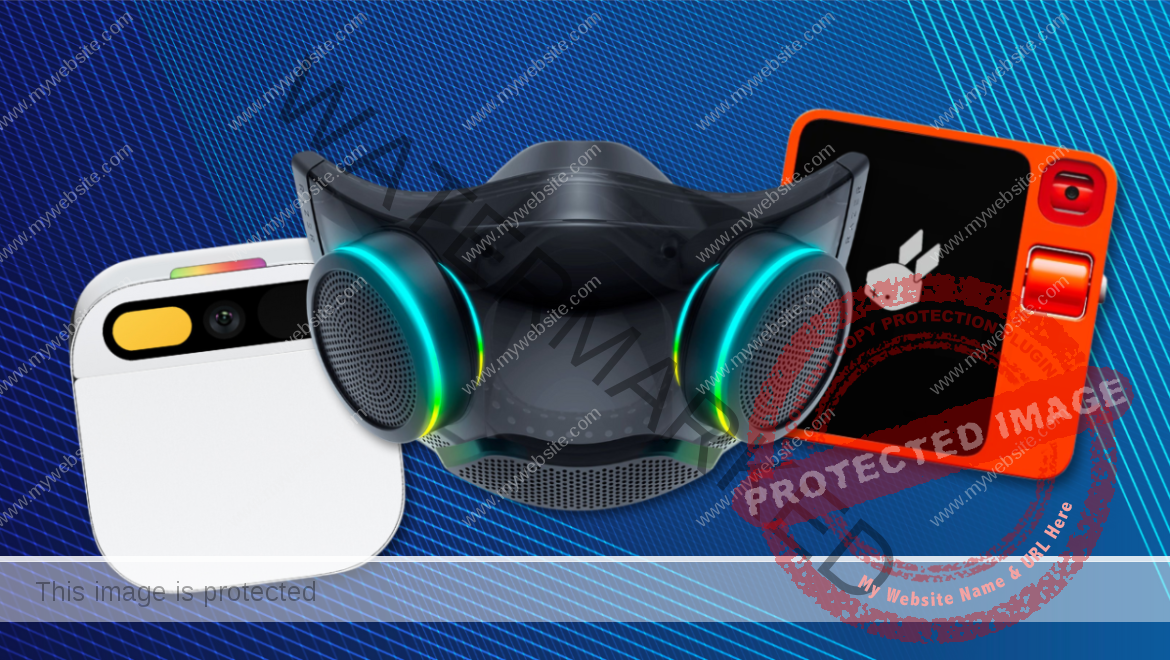Humane AI raised more than $230 million before it even shipped a product. And when it finally released its Ai Pin – which costs $699 plus a $24 monthly subscription – pretty much every tech reviewer came to the same disappointing realization: this much-hyped product, which promises to disrupt the smartphone’s dominance, is not very good.
Yet some onlookers are declaring that Marques Brownlee, the hugely popular YouTuber known as MKBHD, will be single-handedly responsible for the company’s eventual downfall. So, one of the biggest conversations as Humane AI dropped its long-awaited product was not about the product itself – it was about how Brownlee spoke about it.
Brownlee’s video title is admittedly a bit clicky: “The Worst Product I’ve Ever Reviewed… For Now.” But when you watch the actual video, the title delivers on its promise.
“It was really hard to come up with a title for this video,” Brownlee says in the video itself, which currently has over 5 million views. “But I will say, at one point, my working title for this was, ‘This product is either the dumbest thing ever, or I’m an idiot.’”
Sure, Brownlee is unusually influential with over 18 million YouTube subscribers, but his critiques are on par with other reviewers’ commentary: the pin has bad battery life; it is difficult to wear; it makes mistakes too often to be reliable; its laser projection screen is completely ineffective outdoors; and it’s simply not worth the same sticker price as an Android phone.
Yet Brownlee bears the brunt of the ire from the company’s fans.
“I find it distasteful, almost unethical, to say this when you have 18 million subscribers,” Daniel Vassallo wrote on X. “Hard to explain why, but with great reach comes great responsibility. Potentially killing someone else’s nascent project reeks of carelessness. First, do no harm.”
The tweet set off a firestorm, with many defending MKBHD for telling consumers the truth about his experience with the Ai Pin. MKBHD even tweeted back to the upset user, saying, “We disagree on what my job is.”
Vassallo is not the only commentator with this sentiment. Another tech content creator, Alex Finn, wrote on X: “MKBHD bankrupted a company in 41 seconds,” referring to the opening of his video. He later commented, “If this video never came out, they would have sold so many more.”
When reached for comment, Vassallo said, “Many people thought I was defending Humane or its product. I wasn’t. My observation was about MKBHD’s scale of influence and how that power deserves more rigor than the sensational headline on YouTube: ‘The Worst Product I’ve Ever Reviewed.’ The power to crush a company shouldn’t be taken lightly, and that headline is what most people will see. The actual review was fair and balanced.”
An underdog worth $800 million
Critics of MKBHD’s video are operating as though Humane AI is an underdog in the space. But this isn’t a green, early-stage startup trying their hand at building new hardware. This is a company that raised a Series C round and attracted investors like Salesforce CEO Marc Benioff, OpenAI CEO Sam Altman, and various top venture capital firms before consumers even got their hands on the product.
“Call me cynical, but I’m wary of startups with huge war chests of capital but no commercialized product to speak of,” TechCrunch reporter Kyle Wiggers wrote after last year’s Series C raise.
When asked for comment, MKBHD directed TechCrunch to his YouTube response to the situation.
“All that any honest review actually does is just accelerate whatever was already going on,” he said in the video. Less than a day after posting it, his follow-up video has over 2 million views.
This isn’t an isolated incident for MKBHD. The YouTuber was also accused of inciting the downfall of EV startup Fisker after he negatively reviewed the Fisker Ocean car in a similarly titled video last month: “This is the Worst Car I’ve Ever Reviewed.”
After Brownlee posted his review, Fisker laid off 15% of its staff and stopped production, since it only had $121 million left in the bank. But Fisker was already in free fall before Brownlee said that the Fisker Ocean was the worst car he’d ever reviewed.
In the month preceding the MKBHD review, federal safety regulators began investigating the Fisker Ocean for complaints about the brakes not working well. Then, TechCrunch exclusively learned that Ocean drivers had been complaining to Fisker about poor brake performance, faulty key fobs and sudden power loss for months. One customer wrote to Fisker that they feared for their life when their car suddenly lost power while driving on the 405 freeway in Los Angeles.
So, is Fisker failing because it put out a dangerously poor product, or is it because a very popular YouTuber said that the car is bad?
Thankfully, Humane AI’s subpar pin won’t put anyone in mortal danger. But these parallel incidents display the same misplaced rage at Brownlee over his honest critique of troublesome products.
An uncomfortable yet familiar critique
Some Black techies viewed the critique of MKBHD through a different lens.
The Humane AI pin was widely panned across the tech review board, but the only person receiving outsized and long-lasting criticism for his review is MKBHD, a Black man.
There were also some familiar tropes in how he was being criticized: continuous hampering on how he presented the review mimics tone policing, a technique used commonly to dismiss especially what Black people say, just because a person doesn’t like the way it was said. Black people are judged harshly on how they present a topic and are undermined until they present it in a way that makes the accuser more comfortable.
“If Brownlee were anything other than Black, this would be ‘an honest review that shines a light on the AI bubble,’” one Black founder told TechCrunch. “Instead, he’s ‘harsh,’ and ‘it’s not fair that he can bankrupt such a well-funded company. He should be more graceful in his critique.’ In a world full of shams and frauds, Marques should do exactly what he thinks is right. And he did.”
The tone of the review’s headline also depends on how you see it — MKBHD did include “for now” in the title, allowing the possibility that Humane AI could eventually improve what every reviewer now agrees is a flawed product.
It is also notable that the tech community reserved particular criticism for a Black man exercising power through his reviews, and not the other white male tech podcasts, voices, and online reviewers who always share their voices and are praised for their remarks and criticisms of products. It felt as if some expected MKBHD to be held to a higher standard in a way that isn’t usually vocalized against prominent white tech influencers.
“Tech has issues with bias against Black people, tech has issues with the media being a critic, not a cheerleader, so of course, tech has issues with a Black tech media take that is critical of fanboy topics like AI and IoT,” a Black investor told TechCrunch. “That doesn’t make his review less valid or the crying less thin-skinned, but it does make me question how anyone can watch this playout without noticing all the dog whistles.”
But it’s notable in itself – both for Brownlee and the creator economy at large – that a YouTuber can conceivably have such a big impact.
In an interview with Colin and Samir, Brownlee reflects on a past era of media when tech reviewers at the Wall Street Journal and the New York Times were some of the only voices that people went to for opinions on new tech. But now, anyone on the internet can have a say, regardless of their institutional affiliation.
“When a YouTube video of mine goes up on a product, there are very frequently hundreds others going up on the same product around the same time,” he said. “There are so many more voices now.”










